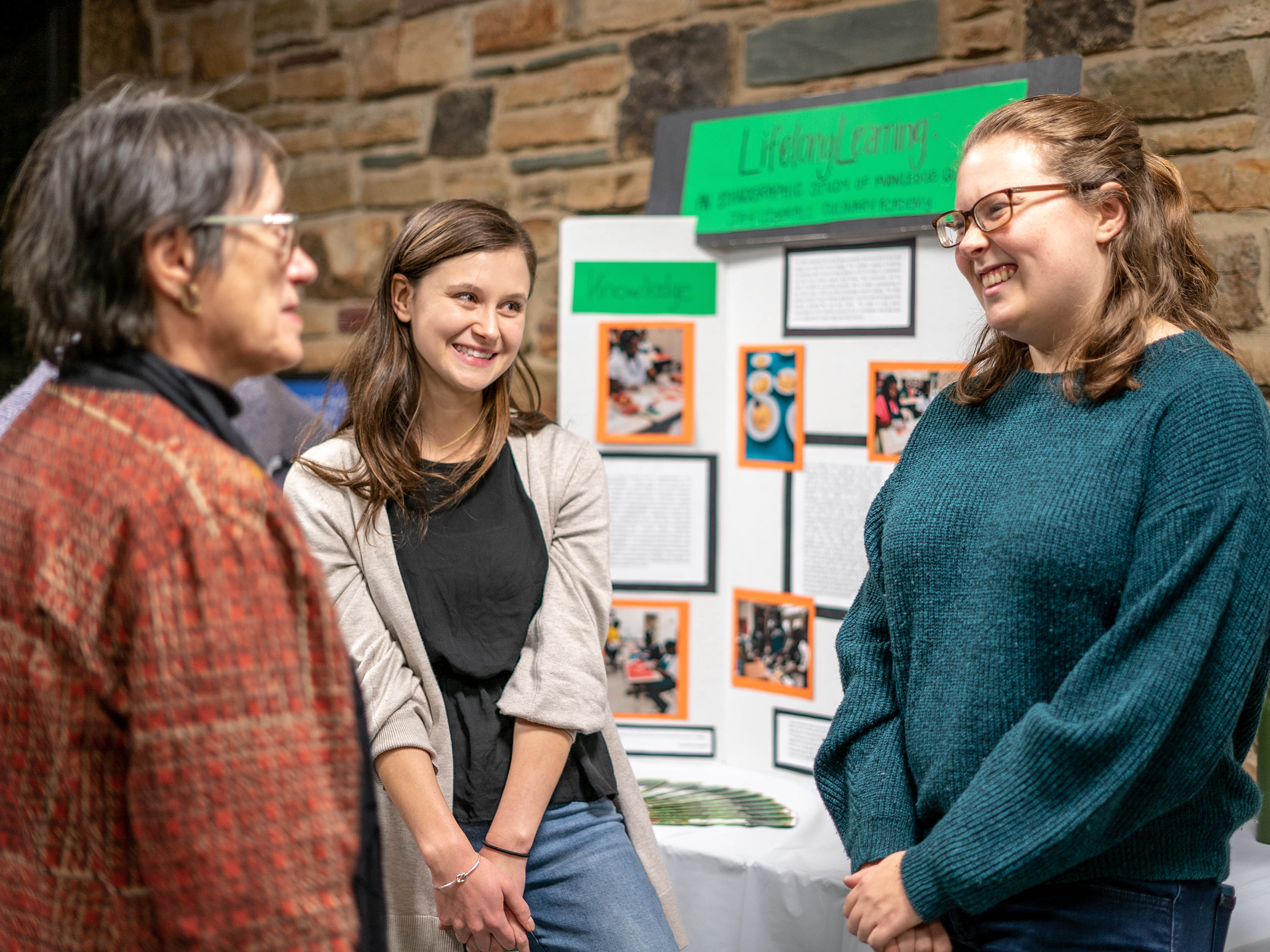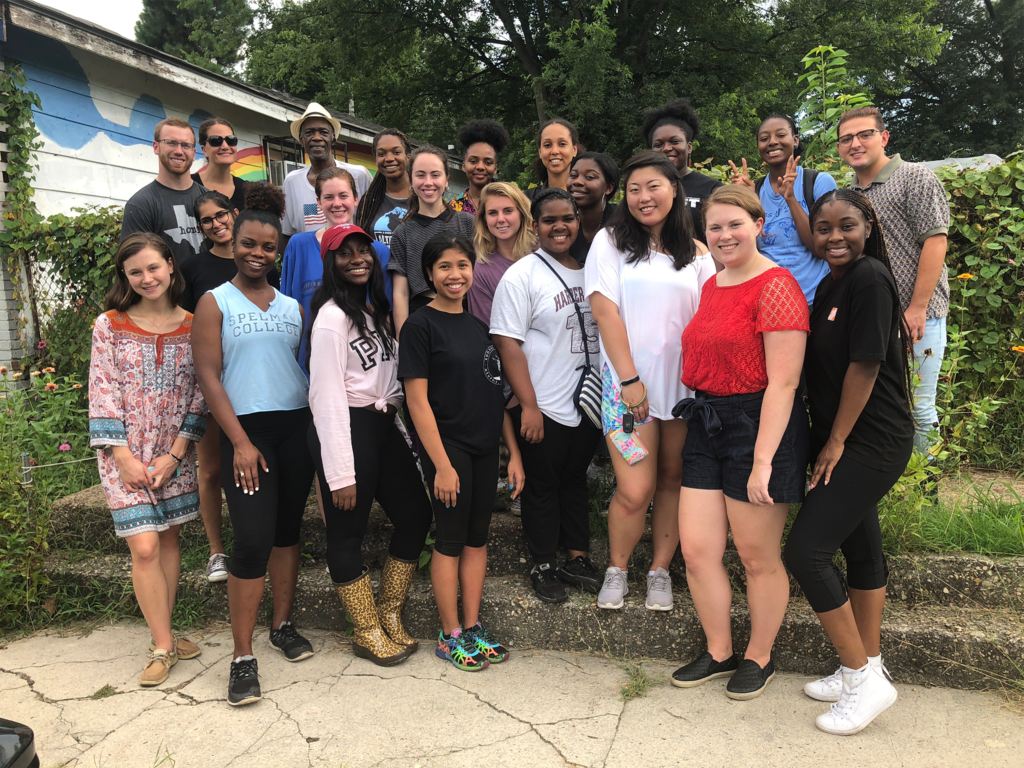
In the 2018 fall semester, students in the Just Food: Race, Class, and Gender in the U.S. South course compared the dynamics of food production, distribution, and access in Memphis and Atlanta. Their studies culminated in an exhibit on campus that highlighted the work of Memphis organizations trying to reduce food inequalities.
The course, which featured guest lectures from community organizers and activists, was co-taught by Dr. Kimberly Kasper, assistant professor of anthropology and sociology at Rhodes, and Dr. Ashanté Reese, assistant professor of anthropology and sociology at Spelman College in Atlanta. Kasper is an archaeologist who focuses on food heritage and inequalities from the past to the present, and Reese is a cultural anthropologist who utilizes ethnography to decode race, place, and food. Reese previously spent a year at Rhodes as a Hearst Fellow, which led to her collaboration with Kasper.
Kasper says she was inspired to offer the course primarily because of student interest in food injustice. Additionally, Rhodes’ partnerships within the Overton Park Community Farmers Market, in addition to collaborations with nonprofits such as Memphis Tilth, AARP, Landmark Farms, Knowledge Quest, and the Mid-South Peace and Justice Center, were integral to the initiation and success of the course. “We’re attempting to bolster the narratives that we’ve heard within those organizations that are doing food justice-based work, and allow students more chances to work one-on-one with them,” says Kasper.
The teamwork of Kasper and Reese enabled students to learn more about how race, class, disability, and gender intersect within food production, distribution, and access in both Memphis and Atlanta. Throughout the semester, students grappled with and expanded their horizons through their interactions with city-based organizations that are combatting food inequalities. For example, students noted how the Memphis BusRiders Union contributes to food justice. “People need access to transportation to be able to go to the supermarket, to access the doctor, to be able to make choices about their own food consumption,” says Kasper.
Although food inequities are layered, complicated, and embedded in larger social structures, Reese says she hopes when students complete the Just Food course, they don’t feel hopeless about food inequalities, but instead know that there is room for everyone to tackle some aspect of the problem, both locally and globally.
Kasper plans to repeat the Just Food course over the next two years with Dr. Joel Parsons in the Department of Art and Art History. Students will continue to work with different organizations and individuals across Memphis, while curating data on various elements of food injustice. The goal is to incorporate the data for a final, city-wide exhibit in 2021.
If you are interested in learning more about this past semester’s Just Food collaborative work, join the class and other members of Memphis’ thriving local food system at the Mid-South Farm to Table Conference on Feb. 11 from 12:30-1:30 at Christian Brothers University. More information can be found here. Admission is free for all college students.
By Jaclyn Flood ’21
